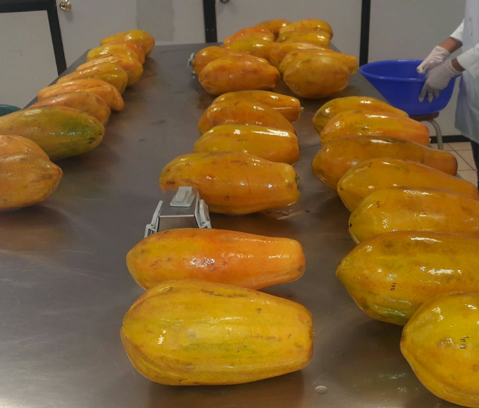 |
|
Papaya (Carica papaya L.) is one of the most valued tropical fruits worldwide due to its nutritional content. Its production is drastically affected by Colletotrichum gloeosporioides, one of the main pathogens responsible for anthracnose disease. Several techniques as an alternative of conventional chemical treatments for disease control have been studied. Among these techniques, the use of antagonist microorganism has emerged as a promising, eco-friendly alternative for postharvest disease control. This review is focused on the inhibition of Colletotrichum gloeosporioides in papaya applying microbial antagonists. Furthermore, the main purpose of this study is to provide the results of in vivo and in vitro assays, that addressed the use of microorganisms and their activity as biocontrol agents in papaya, considering its application to diminish crop losses and suggesting possible future researches addressed to their attractive usage. We believe that a specific compilation is helpful for groups that are in research of pre- and postharvest fruits management, providing useful information to create new perspectives and/or alternative in emerging technologies.
Keywords: microbial antagonists, biological control, postharvest disease, papaya, C. gloeosporioides.
|
|
 |

